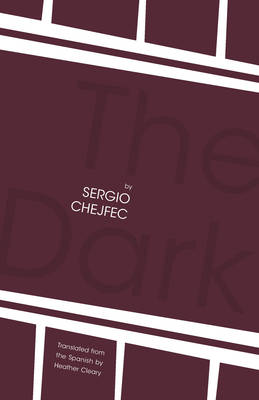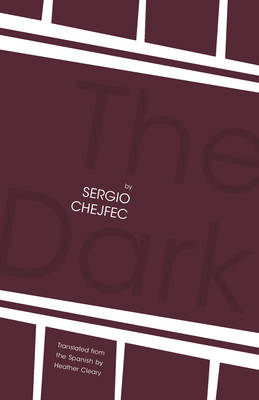
- Retrait gratuit dans votre magasin Club
- 7.000.000 titres dans notre catalogue
- Payer en toute sécurité
- Toujours un magasin près de chez vous
- Retrait gratuit dans votre magasin Club
- 7.000.0000 titres dans notre catalogue
- Payer en toute sécurité
- Toujours un magasin près de chez vous
Description
"Early in Sergio Chejfec's The Dark, the nameless narrator describes his disorientation when looking over a landscape as 'the vertigo of simple things.' This phrase describes the experience of reading Chejfec's novel. . . . These moments, when Chejfec combines exquisite prose with the human yearning for truth and beauty, keep us reading, weighing the novel's contradictions, sifting through the narrator's abstract reflections in search of his life's meaning."--Rain Taxi
Opening with the presently shut-in narrator reminiscing about a past relationship with Delia, a young factory worker, The Dark employs Chejfec's signature style with an emphasis on the geography and motion of the mind, to recount the time the narrator spent with this multifaceted, yet somewhat absent, woman. On their daily walks he becomes privy to the ways in which the working class functions; he studies and analyzes its structure and mindset, finding it incredibly organized, self-explanatory, and even beautiful. He repeatedly attempts to apply his 'book' knowledge to explain what he sees and wants to understand of Delia's existence, and though the difference between their social classes is initially a source of great intrigue--if not obsession--he must eventually learn that there comes a point where the boundary between observer and participant can dissolve with disarming speed.
In a voice that favors erudite distance, yet simultaneously demands intimate attention, The Dark is the most captivating example of Sergio Chejfec's unique narrative approach, and a resonant novel that calls into question the necessity, risks, and fallout behind the desire and attempt to know another person.
Sergio Chejfec, originally from Argentina, has published numerous works of fiction, poetry, and essays. Among his grants and prizes, he has received fellowships from the Civitella Ranieri Foundation in 2007 and the John Simon Guggenheim Foundation in 2000. He teaches at NYU.
Heather Cleary is a translator of fiction, criticism, and poetry. In 2005, she was awarded a Translation Fund grant from the PEN American Center for her work on Oliverio Girondo.
Spécifications
Parties prenantes
- Auteur(s) :
- Traducteur(s):
- Editeur:
Contenu
- Nombre de pages :
- 143
- Langue:
- Anglais
Caractéristiques
- EAN:
- 9781934824436
- Date de parution :
- 11-12-13
- Format:
- Livre broché
- Format numérique:
- Trade paperback (VS)
- Dimensions :
- 142 mm x 216 mm
- Poids :
- 204 g

Les avis
Nous publions uniquement les avis qui respectent les conditions requises. Consultez nos conditions pour les avis.






